#bee conservation
Link
It takes a bit of backstory to explain why this is good news.
Some endangered species laws were written before invertebrate conservation (insects, molluscs, etc.) was taken into consideration, so the language of the laws does not explicitly include these groups of animals. For example, the California Endangered Species Act states that endangered species can be mammals, birds, amphibians, reptiles, or fish.
Historically, aquatic invertebrates (lobster, clams, etc.) were included under the umbrella of “fish”, but courts have now ruled that terrestrial invertebrates can also be lumped into the “fish” category and therefore protected under the California Endangered Species Act.
Thanks to this ruling, threatened species of native bumblebee will now be able to receive legal protection.
#invertebrate conservation#bee conservation#pollinator conservation#save the bees#good news#environment#biodiversity#insect conservation#tw insect#tw bee
5K notes
·
View notes
Photo
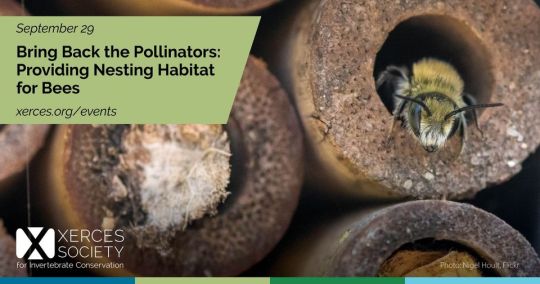
Upcoming webinar:
Bring Back the Pollinators: Providing Nesting Habitat for Bees
September 29: 10:00 AM - 11:00 AM PT / 11:00 AM - 12:00 PM MT / 12:00 PM - 1:00 PM CT / 1:00 PM - 2:00 PM ET
The availability of nesting habitat is a critical yet often overlooked factor impacting native bee populations. In this webinar, Xerces Biologists, Leif Richardson and Sarah Foltz Jordan, will summarize nesting biology of major groups of bees, including leaf-cutter bees, mining bees, bumble bees, and many more.
They will also offer numerous practical approaches to creating and managing nesting habitat features. Approaches are relevant to landscapers, farmers, gardeners, natural resource professionals, and anyone interested in taking the next step in supporting pollinators. Community science opportunities will also be discussed.
Register: https://xerces.org/events/none/bring-back-pollinators-providing-nesting-habitat-for-bees
This is the fourth webinar in the four-part series Bring Back the Pollinators.
This webinar will be recorded and available on our YouTube channel. Closed Captioning will be available during this webinar.
#bees#bee#bee conservation#north american bees#north american native bees#native bees#conservation#habitat#nature#north america#pollinators#savethepollinators#animals#science#ecology#endangered#environment#gardens#gardening#land management
331 notes
·
View notes
Text
Want to Save the Bees? Focus on Habitat, Not Honey Bees
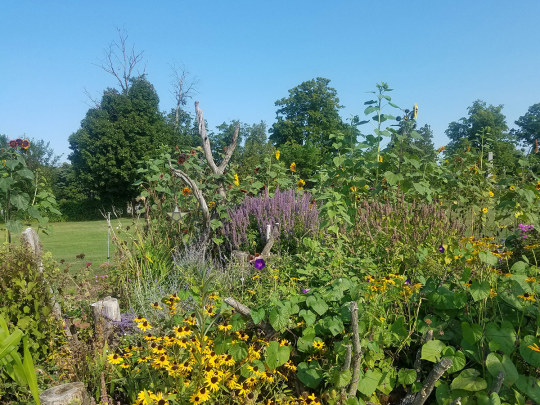
There has been an amazing groundswell of support for bees, motivating people everywhere to act—creating pollinator gardens, planting habitat in parks and on farms, reducing pesticide use or campaigning for citywide bans. It is clear that people care, and many have rallied around this issue.
For some, a tangible goal has been to get a honey bee hive. As a result, hives have appeared in gardens and backyards, on rooftops, and in parks and nature reserves. On the surface, this makes sense: if bees are declining, it would seem that more bees in more places will help. Yet, when we look deeper, efforts to increase the number of honey bees on the landscape may be doing more harm than good.
Read the full article here.
via The Xerces Society for Invertebrate Conservation
3K notes
·
View notes
Text
Native Plant Info Masterlist...2!
This will be a USA centric post sadly, mostly focused on the East, since I am unfamiliar with resources outside of my area.
iNaturalist lets you upload pictures of any organisms and get them identified by the community, but if you don't want to upload, you can still lurk and look through all the photos being posted in your area to develop familiarity with the plants
Wildflower Search lets you toggle between photos of leaves, flowers, fruits etc. of each plant, gives loads of links to other sites that provide info, lets you search by flower color, plant type, time of year, and about a dozen other search criteria- very cool site
Wildflower.org is another very good site- has a search function where you can search plants by various traits and qualities
Find native plants by the number of butterflies that use them
Butterfly host plant list
Keystone species for every USA ecoregion for butterflies and bees
UNC Chapel Hill's 2022 Flora of the Southeastern United States. The ultimate EXHAUSTIVE compendium of plants. You can download it but beware it is over 2,000 pages long
Illinois Wildflowers is an excellent resource for plants found throughout the southeast and Midwest
Virginia Wildflowers
Northern Forest Atlas Awesome high quality photos of trees and leaves, buds, etc.
Name That Plant is a great resource focused on the Carolinas and Georgia
Maryland Biodiversity has much information on plants and many other creatures
Sarracenia.com is all about carnivorous plants
Native Beeology is focused on native bees of New York State
Also try looking up "[your state] native plant society" as many states have one! It could be a great way to find opportunities to get involved.
#usa centric#native plants#native plant gardening#gardening#plants#nature#flowers#bees#save the bees#no lawns#kill your lawn#fuck lawns#biodiversity#conservation#us centric#trees
2K notes
·
View notes
Text
"#Save the Birds!"
Imagine if there was a popular movement to "save the birds" but the only birds people knew about were chickens and maybe geese. So everyone proposes doing things like raising chickens in your backyard to save the birds.
There IS a strange disease affecting chickens that is a major threat to the poultry industry. It's just that at the same time there are devastating declines in other birds that no one is paying attention to.
Now imagine that you are one of the few people who knows that other birds exist. You have nothing against chickens. It's just that there are so many wild birds that need our help too. Everyone you meet is surprised when you inform them about these other birds.
All this time, the other birds can be seen right outside their windows. It's just that few people take the time to stop and notice them.
This is what "Save the bees" is like.
529 notes
·
View notes
Text

We're not really sure what it is, but experts say America is now deep in the throes of a terrible thing called "late-stage capitalism." Paul Krugman and Che Guevara tried to warn us, but we didn't listen. The consequences aren't for the faint of heart.
To help you prepare for the terrible things you're going to witness as we reach this horrific time in human history, The Babylon Bee has compiled the following list of frightening features of late-stage capitalism:
Readily available food: And you don't even have to stand in lines all day for it. Disgusting.
Air conditioning that freezes your wife to death: Late-stage capitalism is especially hard on women.
People running for fun: You see that guy running in your neighborhood? Nothing is chasing him. It's unnatural.
Cruises: Thousands of middle-class people squished on a boat having a great time? Might as well be a concentration camp.
Tom Cruises: We must stop capitalism before they multiply!
Stanley tumblers: Nobody needs to drink that much water.
Banned books being available at every bookstore: Only unadulterated opulence makes things that are banned so widely available.
Plenty of free time: You might end up getting roped into a nice board game with your family. Ugh.
So many entertainment options that you spend all night on the couch trying to decide what to watch: And then your wife falls asleep as soon as you find something. Curse you, capitalism!
Chick-fil-A: Capitalist fat cats love the luxury of having delicious chicken and waffle fries handed to them in their cars. Obscene.
Long lines at amusement parks when it's hot outside: Hell on Earth.
So few actual problems that we have to invent some: Like being born the wrong gender.
Donald Trump: AAAAGGGGHHHH!
There's no denying it, you're seeing unmistakable signs that the outright collapse of capitalism is imminent. Switch over to communism while there's still time!
#Communism#Antisocialism#Anticommunism#Economics#Minimum Wage#Living Wage#Eat the Rich#Republican#Democrat#Libertarian#Conservative#Liberal#funny#funny meme#capitalism#socialism#dark humor#politics#anticapitalism#babylon bee
181 notes
·
View notes
Text
"Save the Bees" is not enough
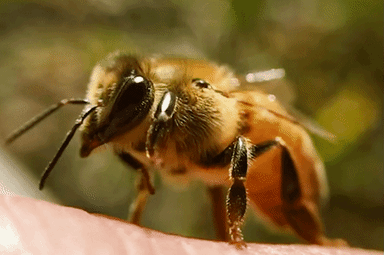
Yo, Solarpunks. Let us talk bees. And yes, everyone else, too. Like, yeah, bees.
See, whenever we are talking about insects dying, people will go "save the bees". And whenever I hear "save the bees", I will just go and say: "You don't get it, do you?"
People like bees. Because bees make honey, right? Yeah, only they don't. No, really. The honey bee is just one species of bees, while other bee species do in fact not make honey. Which is why we domesticated the honey bee, but not those other species. Duh. Because one was useful to us, while the others were not. As such we love the honey bee, but do not care about the other insects that are dying off.
Meme culture tells me, that you have probably seen Bee Movie. And I will now shock you. The movie lies to you! ("No!" - "YES!") And with that I do not mean, that actual bees are unable to speak. Or the fact that most bees are female (if we really wanna impose genders on bees). No, with that I mean the big thing that happens in the finale of the movie of all plants and what not dying off.
For those, who somehow have not seen that 90 minute meme: In the movie the honey bees sue the humans for stealing their honey. They win. Have their own honey and stop working. (Boy, lots to unpack there, eh?) and because of it all the flowers and crops die.
Well, here is the thing: Honey bees are actually not that important as polinators. Like, sure, they polinate a lot of crops and flowers, but... normally they are not the big pollinators, even though we kinda make them to, by shipping all those honey bees around. Other bee species pollinate a lot of plants, too. And so do other animals, like bats and birds for example. And that is without going into the less liked animals that pollinate, like flys. And then we also have all those self-pollinating crops and flowers, as well as air polinating plants.
Let me make one thing clear: You should care about bees. All the bees. (Because hint, the honey bees have the least of a problem.) But you should also care about the other insects that are dying off. Not only because of the pollination, but also because insects play a bigger role than just pollination.
Insects, for example, are important as prey animals for lots of birds and smaller animals. Just as some insects might actually play a role in dealing with natural waste. So, the dying off of insects is a bigger problem of "plants don't get pollinated".
So, why do the insects die?
Yes, part of the reason is habitat loss. You know, your lawn is a fucking desert to most insects. They not only need a bigger variety of plants around (not just flowers), but maybe also some old wood to borrow into and some loose earth on the ground. Stuff like that.
Insects usually also do not deal very well with the climate change. Be it with the growing heat or with the more erratic weather patterns of draught and then just quick and sudden rainfall, that does not linger.
And, of course, there is also the fact that we use a lot of anti-insect pesticides in agriculture. Which does not only hit those pests, but basically any other insect around.
And then... there is the invasive species. We kinda spread a lot of invasive insect species around, that also kill a ton of the local insect species.
So... What can you do? Well, if you have a garden, you can make it more insect friendly. Duh. You also can leave out some water for insects and birds. They all need it.
But most of all: Become politically active. Make sure that pesticides are used less. It is maybe the most important.
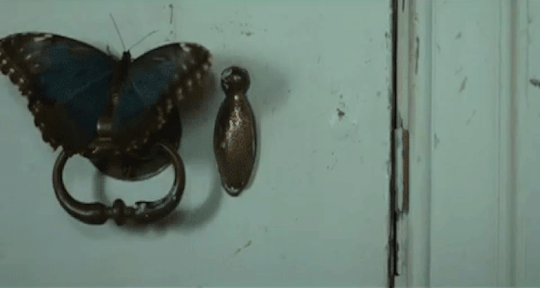
#solarpunk#save the bees#bees#cw insects#insects#climate change#conservation#save the planet#bee movie is lying to you#environmentalism
287 notes
·
View notes
Text
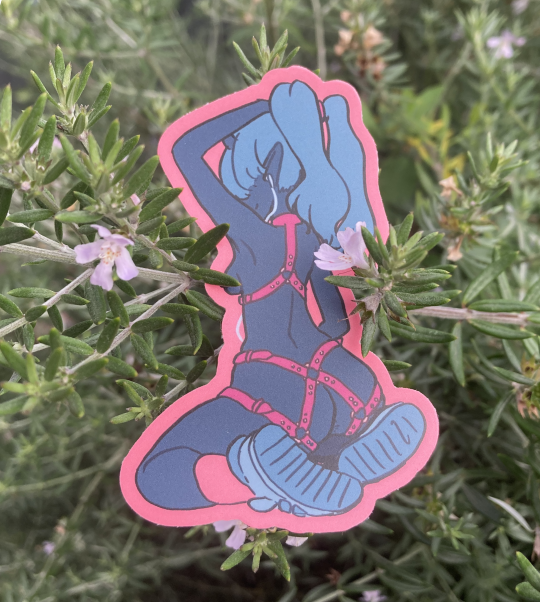
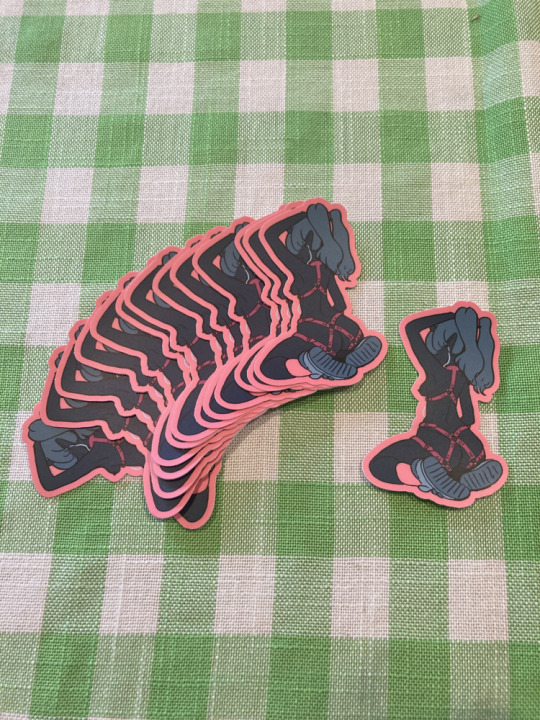
Hey not sure if you heard, but Gumroad is banning adult content going forward! They are continuing in the long tradition of sites screwing over adult creators with no notice, warning, or concrete transitional period, so please feel free to let them know how you as a customer feel about that, their email is [email protected]
Anyway, I don't know how long it will take for me to find an alternative way to sell my stickers, so this might be your last chance to get some! Please have a look if you have been on the fence
Remember, fight for the internet you want!
#bee talks#censorship#gumroad#stickers#news#puritanical internet#why is every payment provider run by such conservative tools
68 notes
·
View notes
Text
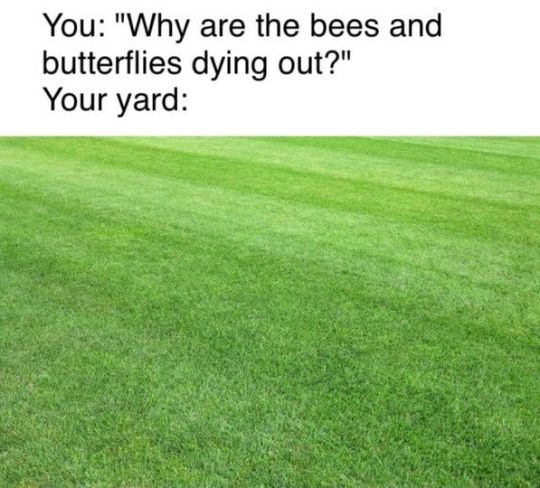
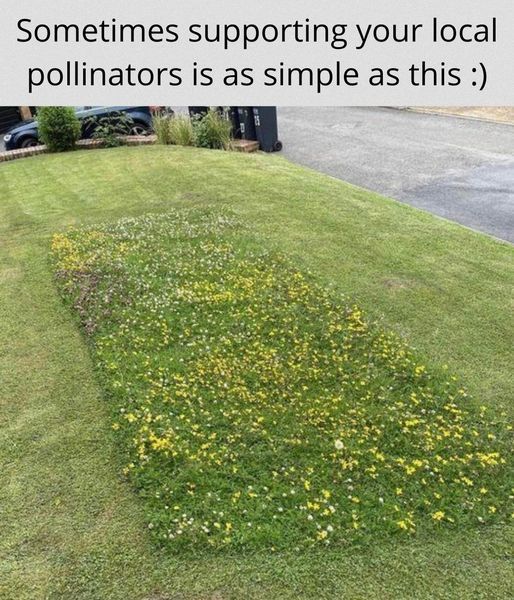
321 notes
·
View notes
Text
This is a big deal! While the importance of pollinators has been in the headlines more over the past few years, a lot of the focus has gone toward European honey bees, which are not native here in North America. This new plan focuses specifically on our native bumble bees, to include severely declining species like the western bumble bee (Bombus occidentalis).
What's really cool is that they've targeted the ecoregions that are likely to have the most species of threatened bumble bees. It doesn't mean they won't do anything elsewhere, but when you have limited resources you want to make them have as much impact as possible.
In the meantime, consider this a reminder to add some native plants to your yard, garden, and/or porch, say no to pesticides and other yard chemicals unless absolutely necessary, and spend a little time learning about the native pollinators in your area!
#pollinators#bees#save the bees#bumblebees#bumble bees#insects#invertebrates#animals#wildlife#native species#native plants#Washington#Washington State#PNW#Pacific Northwest#entomology#science#scicomm#endangered species#conservation
384 notes
·
View notes
Text

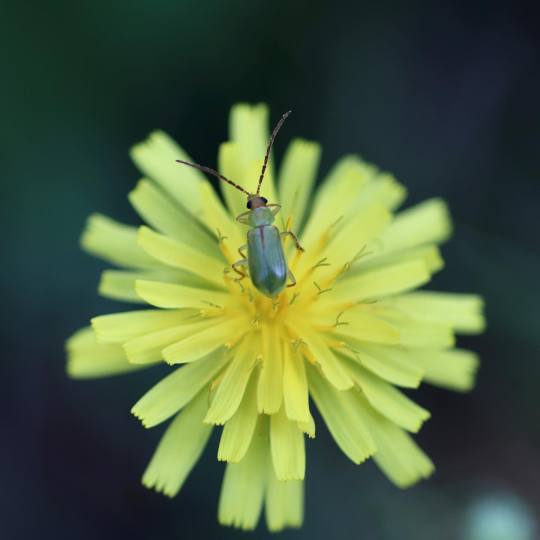



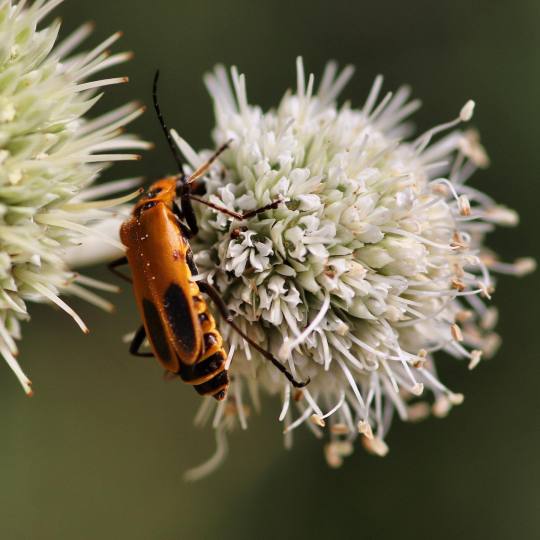
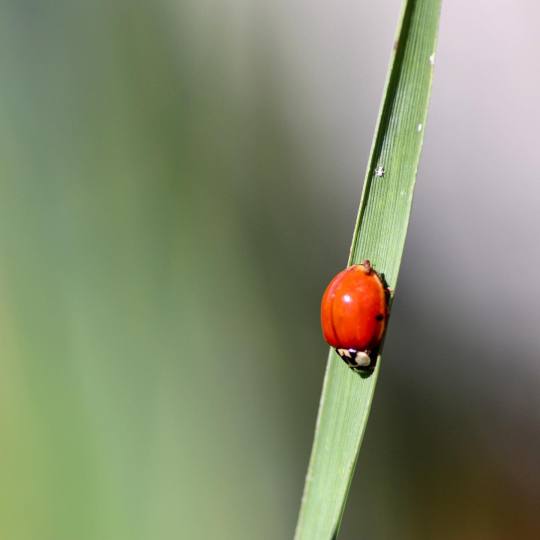
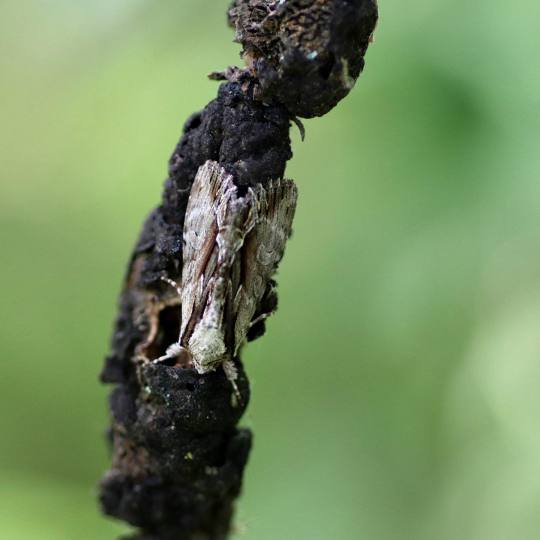
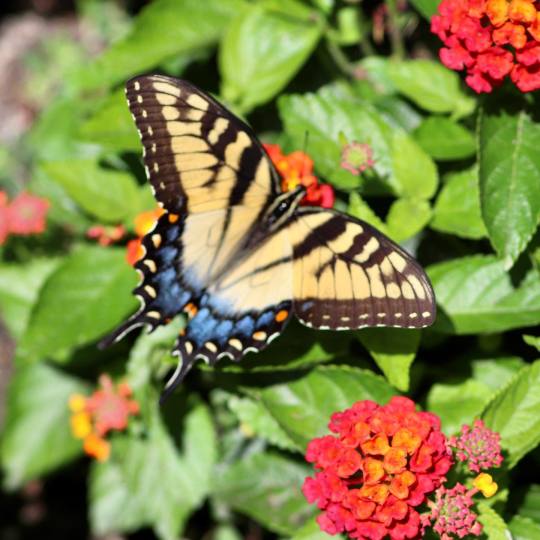

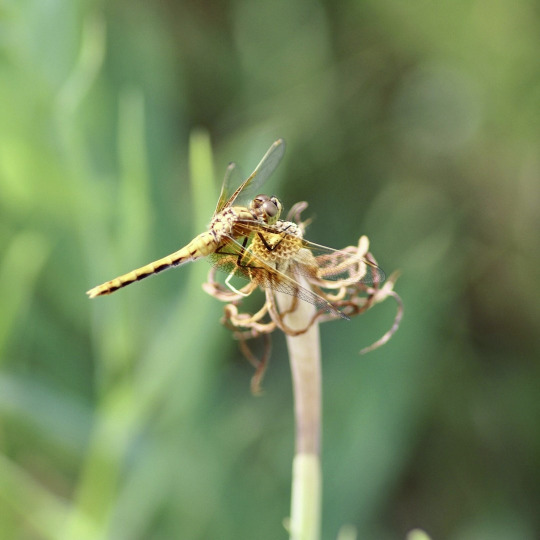

Some of the insects I photographed last summer.
#insects#moth#moths#beetle#beetles#butterfly#butterflies#bugs#naturalist#inaturalist#conservation#biodiversity#photography#macrophotography#bee#bees#insect art
64 notes
·
View notes
Text
#brazil#good news#science#environmentalism#nature#environment#animals#climate change#conservation#bugs#bees#bee keeping#indigenous issues
114 notes
·
View notes
Text
Animal of the Day!
Franklin’s Bumblebee (Bombus franklini)

(Photo from U.S. Fish and Wildlife Service)
Conservation Status- Critically Endangered
Habitat- Southern Oregon; Northern California
Size (Weight/Length)- 15 mm
Diet- Flower nectar
Cool Facts- The Franklin’s bumblebee has the smallest range of any bee species of only a 310 by 110 square kilometer area in Oregon and California. These bumblebees are an important pollinator of the various wildflowers of the area including California poppies and lupine. Sadly, these bees have not been officially spotted since 2006 but hope remains that hives exist in the Sierra-Cascade mountains. In 2019, a monumental decision to add four species of bumblebees, including the Franklin’s bumblebee, to the Endangered Species Act was decided upon. Various search parties are deployed every year with the hopes of finding these bees, but so far none have been successful.
Rating- 11/10 (One of the many examples of a protection enacted too late.)
#animal of the day#animals#insects#bees#bumblebee#monday#june 19#franklin's bumblebee#biology#science#conservation#the more you know
150 notes
·
View notes
Text
https://lnkd.in/efnMPSks CHAMPION STATUS FOR BUMBLEBEE CONSERVATION SITE One of UK’s rarest bumblebees settles in Kent after restoration of former farmland. Former farmland that has been transformed into a mosaic of habitats has been awarded “champion status” for a rare bee that has set up home there. The shrill carder bee, so named because of its high-pitched buzz, is one of the UK’s rarest bumblebees with just five populations remaining across England and Wales. But it has been given a boost by conservation work by the Woodland Trust at its Victory Wood site near Yorkletts, Whitstable, in Kent, which it bought in 2004. Emily Beament, Shane Jarvis 12 December 2022
#conservation#bees#bumblebees#caderbee#pollination#plants#woodlandtrust#work#biodiversity#flowers#meadows#restoration#restoredfarmland
634 notes
·
View notes
Text
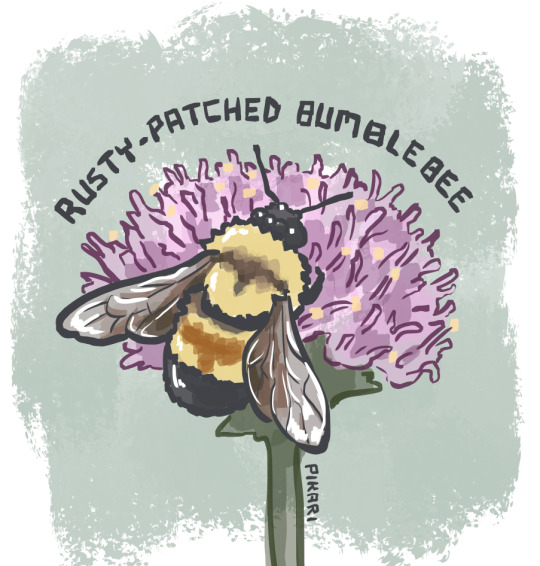
Rusty-patched Bumblebee (Bombus affinis)
Eastern USA and Canada
Status: Critically Endangered
Threats: pesticides, habitat loss, non-native bees, climate change
#friendly neighborhood bee just wants to nom on flowers nom nom#artists on tumblr#pollinators#bug art#bee art#bumblebee#animal illustration#insects#conservation#insect#bee#usa#canada#north america
70 notes
·
View notes
Text
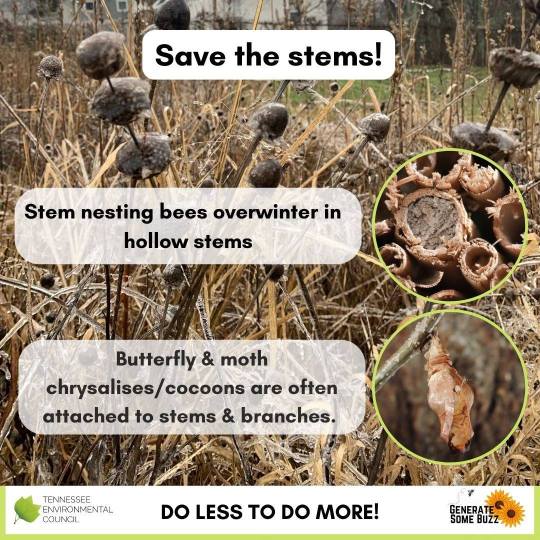
TENNESSEE ENVIRONMENTAL COUNCIL - Home (tectn.org)
#environment#conservation#bees#save the bees#insects#animals#nature#north america#gardens#gardening#science#entomology
87 notes
·
View notes